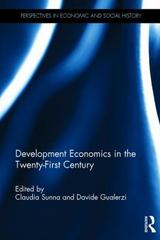Question
Consider this Scenario: Jennifer is 20-years old. It is her fervent desire to become a mother. She has wanted to become a mother for as
Consider this Scenario:
Jennifer is 20-years old. It is her fervent desire to become a mother. She has wanted to become a mother for as long as she can remember. Not only is it to have a child, but it is to birth a baby. She holds to the belief that if it is not your "flesh and blood" then it is not your child. And "Quite honestly", she says, "I could not love a baby that I did not carry and give birth to."
To complicate matters, many in Jennifer's family members developed Huntington's Disease. It is a fatal genetic disorder that causes the progressive breakdown of nerve cells in the brain. It deteriorates a person's physical and mental abilities usually during their prime working years and has no cure. Jennifer knows that she carries the gene for Huntington's Disease and will undoubtedly develop its devastating symptoms.
She was quite distressed when she was diagnosed as having the Huntington's gene. Her doctor told her that she could pass this gene on to her offspring and that this offspring would also develop Huntington's disease.
On that same day, Jennifer read an article that there was experimental genetic procedure being performed in some clinics where doctors used CRISPR to remove diseased genes from harvested, unfertilized human eggs and replaced them with healthy genes. The article even states that Huntington's carriers are ideal candidates or this procedure. The article noted that this procedure was not FDA approved for use in human eggs. The article also mentioned that it was too early to know whether there were any effects on the baby resulting from a CRISPR modified egg.
"Here is my chance!", Jennifer thought. "WOW, I can still have a baby and be assured that it would not get Huntington's Disease". Her next thought was. "What if CRISPR causes some other problem that they are just not aware of? One that could be equally, or more devastating than Huntington's.
Applying Dorbin's 8 Questions to Resolve an Ethical Dilemma Name: 1. What is the ethical dilemma? 2. Regarding this ethical dilemma, what is one choice that Jennifer can make? 3. Regarding the ethical dilemma, what is another choice that Jennifer, can make? 4. What is a fact about genetically manipulating human eggs with CRISPR that is relevant to solve the dilemma? 5. What is a fact about Huntington's Disease that is relevant to solving the dilemma? 6. List one fact that you do not know about CRISPR. 7. What can you assume about this fact about CRISPR that you do not know about? 8. List one fact that you do not know about Huntington's Disease. 9. What can you assume about this fact about Huntington's Disease that you do not know about?
10. What do all these facts about CRISPR and Huntington's Disease mean? Facts by themselves have no meaning. You need to interpret the information in light of the values that are important to you. 11. What does the problem look like through the eyes of the people involved? The ability to walk in another's shoes is essential. Understanding the problem through a variety of perspectives increases the possibility that you will choose wisely. Describe what the problem looks like through the eyes of Jennifer's mother? 12. What does the problem look like through the eyes of the people involved? The ability to walk in another's shoes is essential. Understanding the problem through a variety of perspectives increases the possibility that you will choose wisely. Describe what the problem looks like through the eyes of Jennifer's neurologist? 13. What does the problem look like through the eyes of the people involved? The ability to walk in another's shoes is essential. Understanding the problem through a variety of perspectives increases the possibility that you will choose wisely. Describe what the problem looks like through the eyes of a scientist who researches CRISPR? 14. What will happen if you choose one thing rather than another? All actions have consequences. whether you think more good or harm will come of your action. Based on the information that you have gathered in this exercise, what action will you take? Select one of the following: Move ahead and contact the clinic that is performing the CRISPR procedure. Put the CRISPR procedure out of your mind and resolve yourself to the fact that you will never become a mother.
Not make a decision 15. How do you feel after making the choice made in the previous question? You can select more than one... Excited Relieved Neutral (feel nothing) Anxious Petrified Disappointed 16. What will you think of yourself based on your selected course of action? Choose one of the following: Totally satisfied with my choice (no reservations; no doubt that this is the right thing) Somewhat satisfied with my choice ( I have a few reservations, but will go ahead anyway) Nothing (Life will go on as usual.) Terrible ( I will never be able to live with myself.) 17. Can you explain and justify your decision to others?
Step by Step Solution
There are 3 Steps involved in it
Step: 1

Get Instant Access to Expert-Tailored Solutions
See step-by-step solutions with expert insights and AI powered tools for academic success
Step: 2

Step: 3

Ace Your Homework with AI
Get the answers you need in no time with our AI-driven, step-by-step assistance
Get Started


